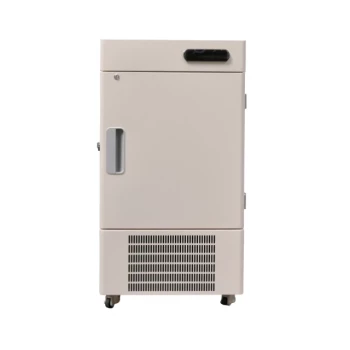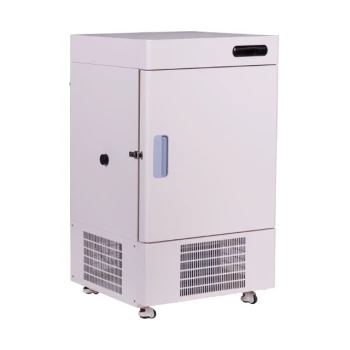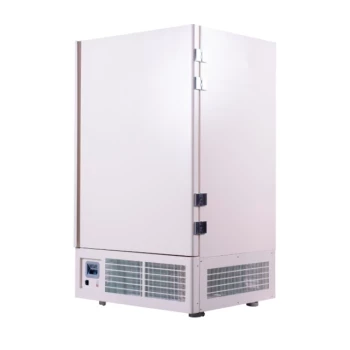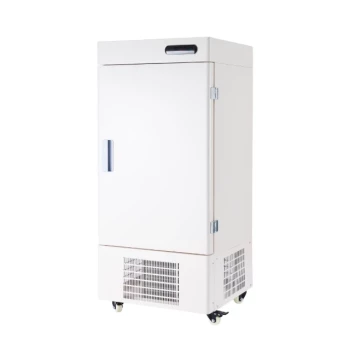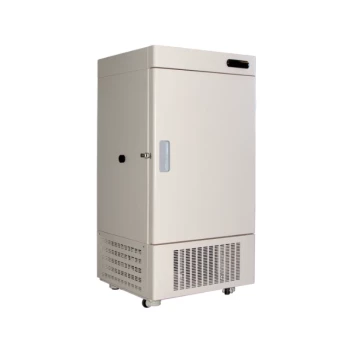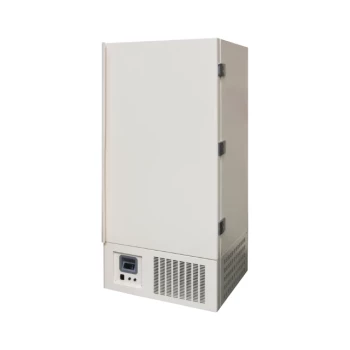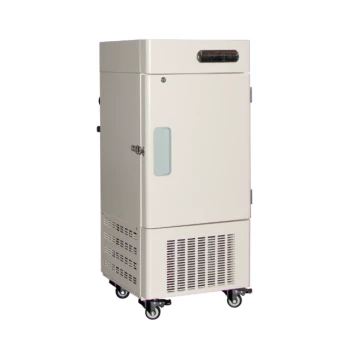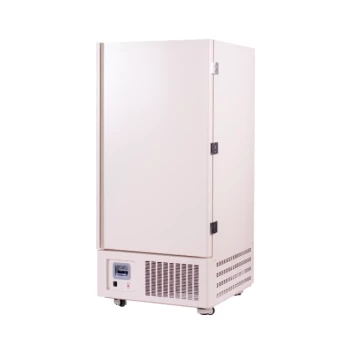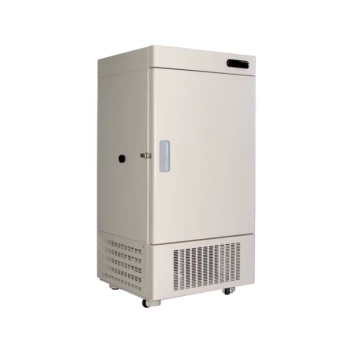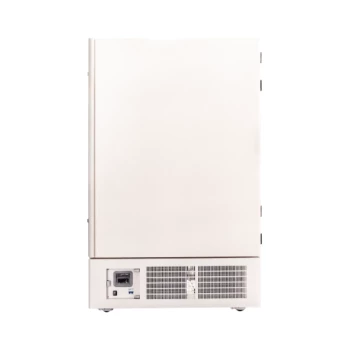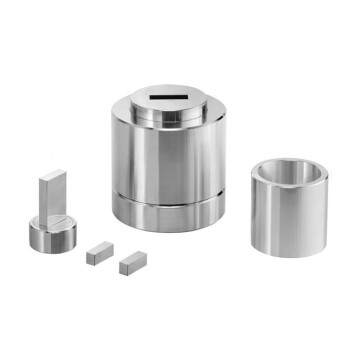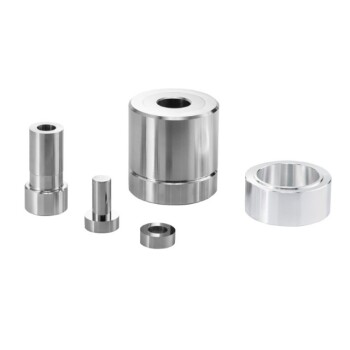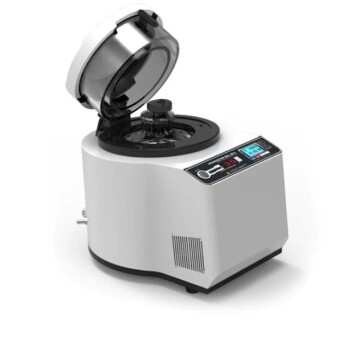At its core, Ultra-Low Temperature (ULT) freezers are required by any institution whose work depends on the long-term preservation of sensitive biological or chemical materials. This includes a wide range of facilities, from hospitals and blood banks to pharmaceutical labs, medical research institutes, and even specialized industrial facilities.
The need for a ULT freezer is not defined by the type of building, but by the mission-critical nature of the samples it contains. If the long-term biological or chemical integrity of a sample is essential for research, medicine, or production, a ULT freezer is a non-negotiable requirement.
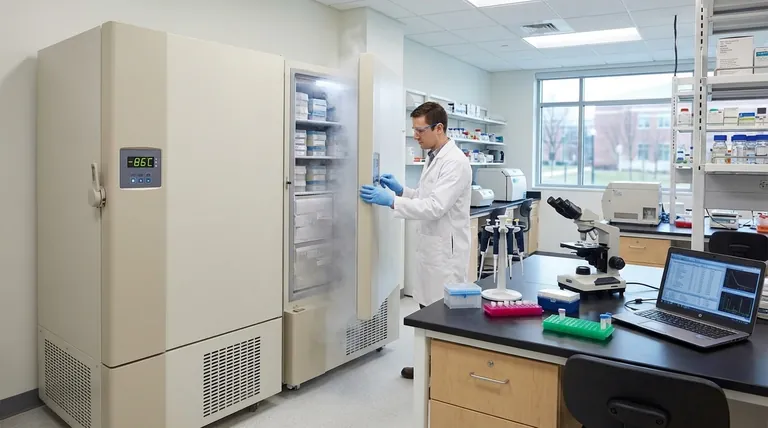
The Core Principle: Preventing Molecular Degradation
The fundamental purpose of a ULT freezer is to halt biological and chemical activity. By maintaining temperatures between -40°C and -86°C, these freezers effectively stop the molecular processes that cause samples to degrade over time.
Medical and Clinical Applications
Hospitals, blood banks, and transfusion centers rely heavily on ULT freezers. They provide the stable, ultra-low temperatures necessary for the long-term storage of blood plasma, tissues, bone material, and other human-derived samples.
This ensures these critical materials remain viable for transfusions, transplants, and diagnostic testing.
Scientific and Pharmaceutical Research
Medical, microbiological, and pharmaceutical research institutes are primary users of ULT technology. Their work involves storing irreplaceable samples for extended periods.
These freezers are essential for preserving the integrity of DNA, RNA, viruses, cells, enzymes, and reagents. In pharmaceutical development, they are crucial for storing vaccines and temperature-sensitive drug compounds to ensure their stability and efficacy.
Specialized Industrial Uses
While less common, certain industrial applications also require ULT freezers. This includes sectors that handle sensitive organic materials.
Examples include the preservation of high-value products like deep-sea fish to prevent decay or the storage of specific compounds used in chemical and textile research.
Key Considerations Beyond the Freezer Itself
Simply purchasing a ULT freezer is not enough. The value of the samples inside necessitates a system of protection and planning.
Ensuring Sample Security and Viability
The contents of a ULT freezer are often priceless and irreplaceable. Because of this, these units are commonly equipped with sophisticated alarm systems.
These systems provide immediate remote alerts in the event of a power outage or equipment failure, allowing personnel to prevent catastrophic loss of valuable research or medical materials.
The Role in Disaster Preparedness
ULT freezers are a cornerstone of risk management and disaster preparedness for any laboratory.
They serve as secure emergency storage for backup samples. In case a primary piece of equipment fails, having duplicate materials stored safely in a ULT freezer can prevent the complete loss of years of work.
Determining Your Need for a ULT Freezer
Your decision should be based on the nature of your materials and the timeline of your work.
- If your primary focus is clinical medicine: You require a ULT freezer to guarantee the long-term viability of patient samples, blood products, and tissues for treatment and diagnostics.
- If your primary focus is foundational scientific research: A ULT freezer is essential for stabilizing delicate biologicals like DNA, cell cultures, and enzymes for longitudinal studies that can last for years.
- If your primary focus is pharmaceutical development: You need a ULT freezer to maintain the strict temperature stability required for valuable drug compounds and vaccines throughout the research and development lifecycle.
Ultimately, a ULT freezer is the critical infrastructure that protects your most valuable assets and enables long-term medical and scientific progress.
Summary Table:
| Institution Type | Primary Use Cases | Typical Samples Stored |
|---|---|---|
| Hospitals & Blood Banks | Clinical medicine, transfusions | Blood plasma, tissues, bone material |
| Research Institutes | Scientific studies, drug development | DNA, RNA, viruses, cell cultures, enzymes |
| Pharmaceutical Companies | Vaccine and drug stability testing | Vaccines, temperature-sensitive drug compounds |
| Specialized Industrial Facilities | Preservation of sensitive materials | High-value organic products, research compounds |
Protect your most valuable samples with KINTEK's reliable ULT freezers.
Whether you're a hospital preserving blood products, a research institute safeguarding years of data, or a pharmaceutical company ensuring drug stability, KINTEK provides the lab equipment and consumables you need. Our ULT freezers offer precise temperature control and advanced alarm systems to prevent catastrophic sample loss.
Ready to secure your critical materials? Contact our lab equipment experts today to find the perfect ULT solution for your facility!
Visual Guide
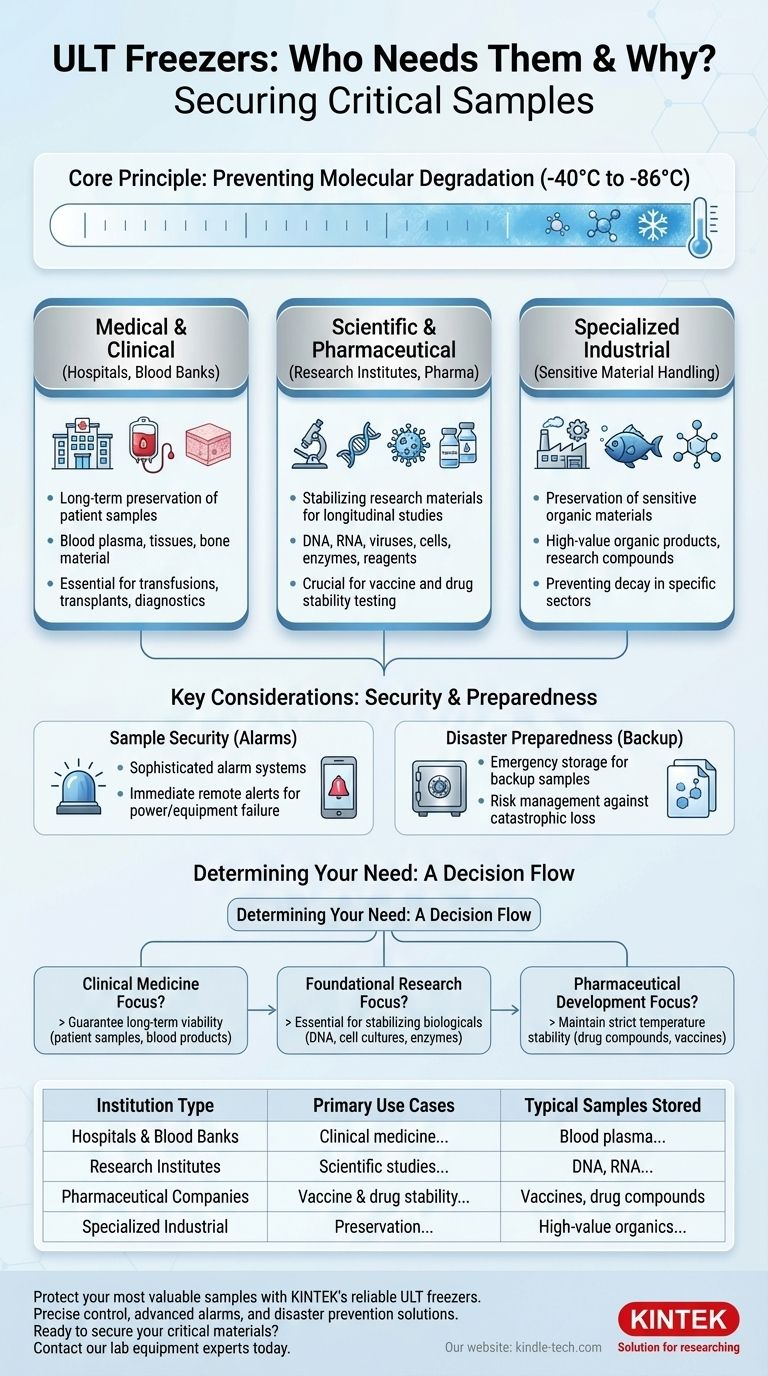
Related Products
- 58L Precision Laboratory Ultra Low Temperature Upright Freezer for Critical Sample Storage
- 108L Vertical Ultra Low Temperature ULT Freezer
- 708L Ultra Low Temperature Freezer High Performance Laboratory Freezer
- 808L Precision Laboratory Vertical Ultra Low Temperature Freezer
- 158L Precision Vertical Ultra Low Freezer for Laboratory Applications
People Also Ask
- How do ultra-low temperature freezers work? Unlocking the Secrets of -86°C Sample Preservation
- How does fast temperature recovery benefit ultra-low freezers? Protect Sample Integrity and Lab Efficiency
- What are ultra-low temperature freezers designed for? Preserving Your Most Valuable Biological Samples
- What are the recommendations for storing mRNA vaccines in ultra-low temperature freezers? Ensure Absolute Stability at -80°C
- What is the temperature control capability of ultra-low freezers? Precise Stability Down to -86°C
